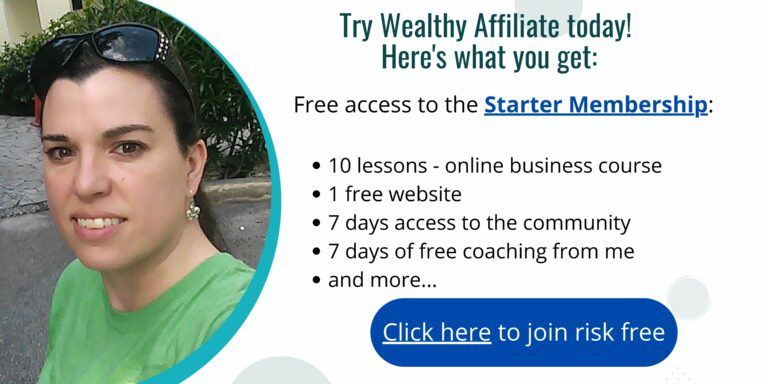If you have ever dreamed of making money while you sleep, affiliate marketing is your ticket to passive income, and it's easier than you think. Did you know that the global affiliate marketing industry is expected to reach a staggering $8.2 billion by 2025? This is a booming field that is ripe with opportunities for beginners. This guide will go through everything you need to know to start your affiliate marketing journey.
Table of Contents
What is Affiliate Marketing?
When I first heard about affiliate marketing, I thought it was some kind of weird pyramid scheme or some get rich quick strategy that never works. But after looking deeper into it, I realized that it was a brilliant business model that is sustainable and can generate passive income easily.
So, what exactly is affiliate marketing? In a nutshell, it's a way for you to earn money by promoting other people's products. Pretty cool, right?
Here's how it works: You've got three main players in the game – the merchant, the affiliate (that's you!), and the customer. The merchant is the company or person who's got a product to sell. The affiliate promotes that product and gets a cut of the sales. And the customer is the person buying the product.
MY PERSONAL REAL-LIFE EXAMPLE:
A few years back, I started a blog about camping. I reviewed different tents, backpacks, and camping gear. One day, I stumbled across this amazing lightweight tent. I loved it so much that I reached out to the company and became an affiliate.
Now, whenever I mention that tent in my blog posts or social media, I use a special link. If someone clicks that link and buys the tent, cha-ching! I get a commission. It's like magic money appearing in my account for talking about stuff I love anyway.
Keep in mind affiliate marketing isn't just about slapping links all over the place and hoping for the best. Trust me, I learned that the hard way. You gotta provide value to your audience. Give honest reviews, share helpful tips, and build trust. Otherwise, you're just another salesperson, and nobody likes that.
There are several reasons why affiliate marketing is awesome for beginners…
First off, you don't need a ton of money to get started. You can even begin with just a social media account if you want.
Second, there is no need to create your own products or deal with customer service headaches.
And finally, you can do it from anywhere. I've literally made money while camping in the middle of nowhere. How cool is that?
But before you quit your day job, let's bust some of the common myths. I can't tell you how many times I've heard people say, “Oh, affiliate marketing? Isn't that just a get-rich-quick scheme?” Nope, not even close. Like any business, it takes time, effort, and a whole lot of learning.
Another misconception is that you need a huge following to make money. Sure, more eyeballs on your content can help, but what really matters is having an engaged audience who trusts your recommendations. I started making decent money with just a few hundred loyal readers.
Oh, and here's a big one – some folks think affiliate marketing is all about pushing products you don't believe in. Honestly, that's just a recipe for disaster. I only promote stuff I've used and loved. Integrity is everything in this game.
Getting Started: Your Affiliate Marketing Roadmap

When I first started with Affiliate Marketing, I was like a deer in headlights, totally overwhelmed. But don't worry, I'm here to help you avoid the same pitfalls I stumbled into.
1: Choosing Your Niche
This is where a lot of newbies get stuck. They think they need to pick something super broad to make money. Big mistake! Trying to be everything to everyone means you end up being nothing to nobody.
Here's what worked for me: I combined my passion (camping) with a problem I'd faced (finding gear for that made camping more convenient). Boom! Instant niche. The key is to find that sweet spot between what you love and what people are willing to spend money on. Trust me, there's a market for almost everything. I once came across a guy making bank selling fancy chicken coops.
2: Find Affiliate Programs:
Once you've nailed your niche, it's time to hunt for affiliate programs. This part can be a bit overwhelming because there are just so many out there! This is actually a good thing however.
My advice is to start with the big players like Amazon Associates or ShareASale. They've got a wide range of products and are very beginner-friendly. But don't stop there! Look for niche-specific programs too. I struck gold when I found a specialty camping gear company with an awesome affiliate program. Their commissions were way better than Amazon's, and their products were a perfect fit for my audience.
3. Build Your Website:
Now it's time to set up your home base… your website or blog. And don't worry, you don't need to be a tech wizard for this. There are tons of user-friendly platforms out there. I started with WordPress and haven't looked back. I also learned how to build out my website using a training program called Wealthy Affiliate. It has ALL the information and training that you need to thrive as an Affiliate Marketer.
This all might seem a bit overwhelming, but the most important thing is to just get started. Pick a niche, choose a program, set up a simple website, and start creating content. You can figure out the rest as you go along. A year from now, you might be the one dishing out advice to newbie affiliates.
Mastering the Art of Product Selection

Picking the right products to promote takes some trial and error, but when you nail it, it's so worth it!
When I first started out, I was like a kid in a candy store. I wanted to promote everything! But let me tell ya, that approach is about as effective as trying to climb Everest in flip-flops. Not gonna work.
So, what should you look for in a product? First off, it's gotta be something you believe in. And it helps if you have personally used and tested it.
However, just because you love something doesn't mean it'll make you money. You've gotta consider factors like price point, commission rate, and how often people buy it.
When choosing products to promote, you need to consider the commission terms. I like to have a variety of flat rate commission items, percentage commissions and recurring commissions.
So what product categories are trending right now? Well, based on what I'm seeing, health and wellness products are still going strong. People are all about those fitness trackers and meditation apps.
Tech gadgets are always a safe bet too. I mean, who doesn't love a shiny new gizmo? I've also noticed that the market for eco-friendly products is exploding. I've seen everything from solar-powered phone chargers to biodegradable hiking boots.
And as always, digital products are where it's at. Online courses, ebooks, software often come with higher commission rates and no shipping hassles. Plus, people tend to buy them on impulse. I once promoted a “Learn to Navigate in the Wilderness” course that sold like hotcakes!
But the overall best product category is the one that fits your niche and resonates with your audience. Don't just chase trends… focus on what your people actually want and need.
Building Your Affiliate Marketing Strategy

Content creation is the bread and butter of affiliate marketing. You need to create content that people actually want to read and that is helpful.
You don't want blog posts that are basically product catalogs with affiliate links. You want to provide value and get people to engage with your content. Sharing your own personal experiences with certain products or services and offering solutions to common problems is a great way to create content.
Once you have created content, you will need to focus on SEO (Search Engine Optimization). This sounds complicated, but it's basically just a way of helping the search engines (like Google) understand what your content is about.
Keywords are important, but don't go crazy stuffing them in everywhere. I once wrote a post where I mentioned “best hiking boots” about 50 times. It read like a robot wrote it, and Google wasn't impressed either. Now I focus on writing naturally and using variations of my target keywords.
Internal linking is a great strategy that is easy to impliment! Connecting your posts to each other not only helps with SEO but keeps people on your site longer.
Social media is another platform you can use in your affiliate marketing strategy, but you want to be careful not to just throw your affiliate links around. There is a way to promote your affiliate products successfully on the big social media platforms.
Building a solid affiliate marketing strategy takes time and effort, but it's so worth it. It's about building trust with your audience, so be genuine, be helpful, and the sales will follow.
Maximizing Your Earnings: Advanced Techniques

While I highly suggest that you start your affiliate marketing strategy with content creation and driving organic traffic to your website, paid advertising is the next step that can turbocharge your results.
If done correctly you can easily turn $1 into $3 or $4 with Facebook ads or Google Adwords. I recommend getting training from experts on how to do this effectively. The Wealthy Affiliate platform has many classrooms and live video training on using paid ads to make money with affiliate marketing.
More advanced techniques include A/B testing and conversion rate optimization. Test everything including headlines, button colors, product image sizes, and call-to-actions. Tiny changes can make a big difference and increase conversion rates by as much as 30%.
Heat maps are helpful as well. They can show you where people who land on your website are scrolling to and spending their time. Armed with this information, you can make design adjustments to fix any problems.
It is also important to diversify your income streams. Don't put all your eggs in one basket! Consider adding digital products or sponsorships. That way if one affiliate program shuts down or slashes their commission rates, you have other income streams that will keep you going so your income doesn't take a nosedive.
Look for affiliate programs with recurring commissions. I promote a trail-mapping app that pays me every month when my referrals renew their subscriptions. It's the closest thing to passive income I've found in this biz!
Networking is a great tool that can give your affiliate business a boost. As your business grows, so should your connections. I've landed some sweet deals through relationships I've built at affiliate marketing conferences. Plus, it's nice to hang out with people who don't glaze over when you start talking about conversion rates!
These advanced techniques can really take your affiliate marketing game to the next level. Just remember to always keep providing value to your audience.

THIS IS HOW I MAKE MONEY ONLINE!
- Build your own website based on your passions and interests
- Generate consistent monthly income
- Grow and monetize your social media platforms
- Work from anywhere and create passive income streams
Measuring Success: Analytics and Tracking
Analytics and tracking will help you stay on top of your business and know what changes or tweaks need to be made.
For instance, Key Performance Indicators (KPIs) are the numbers that'll tell you if you're crushing it or if you need to up your game.
I keep an eye on a whole bunch of KPIs. Click-through rate (CTR) is a biggie. It tells you if your content is actually convincing people to check out your affiliate links. A low CTR can motivate you to improve your call-t-actions, which in turn can drive more sales and income.
Conversion rate is another crucial KPI. This one shows you how many of those clicks actually turn into sales. I used to think a 1% conversion rate was awesome… until I learned that the average is more like 2-3%.
Don't forget about average order value (AOV) either. I once had a product that was selling like hotcakes, but the commission was tiny. When I started promoting a slightly pricier alternative, my AOV shot up, and so did my earnings.
Setting up tracking links give you a great insight into which links are actually bringing you commissions. and cookies. I like to track my links by what blog post they are located in and where on the page they might be. This information tells me at what point are people taking action and clicking through to the affiliate product.
When it comes to analytics tools, Google Analytics is one of the best. It's free, it's powerful, and it can tell you so much about your traffic. Use it to monitor your affiliate link clicks so you can see exactly which pages were driving the most affiliate activity.
But don't stop at Google Analytics. Most affiliate networks have their own reporting tools too. I love digging into these to see which products are performing best, what times of day I get the most sales, all that good stuff.
Interpreting all of this data will allow you to make smart decisions with regards to your website and overall approach to affiliate marketing.
While tracking and analytics are extremely important, don't get paralyzed by analysis. I used to spend hours poring over every little stat. Now, I focus on a handful of key metrics and check them regularly. If something looks off, then I dig deeper.
The key is to use data to inform your decisions, not make them for you. It's about finding that sweet spot between what the numbers say and what your audience needs.
The Next Steps
From choosing your niche to mastering analytics, affiliate marketing is quite the journey. But it can be so rewarding especially when you are able to make a full time living from passive income.
When I first started out, I was fumbling around in the dark, making mistakes left and right. Then I discovered Wealthy Affiliate, and let me tell you, it was like someone flipped on the lights!
Wealthy Affiliate is like a one-stop-shop for aspiring affiliate marketers. They've got training modules that cover everything we've talked about and more. I'm talking step-by-step guides on setting up your website, finding profitable niches, and even advanced stuff like SEO and paid advertising.
But besides all the amazing, up-to-date training, one of the coolest things about Wealthy Affiliate is the community. Imagine having 24/7 access to a whole bunch of folks who are on the same journey as you. Got a question at 2 AM? There's probably someone awake who can help!
Not to mention all the tools that this platform has. They've got a keyword research tool that's a game-changer for finding low-competition, high-profit niches and keywords. Plus, they offer web hosting, which means you can get your site up and running without any technical headaches.
This All-in-One Affiliate Marketing Platform offers a free starter membership, so you can dip your toes in and see if it's a good fit without spending a dime.
Of course, they've got a premium membership too, which unlocks all the bells and whistles. But even that is pretty affordable compared to some of the other training programs out there.
Affiliate marketing isn't a get-rich-quick scheme. It takes work, dedication, and a willingness to learn. But with the right training and support, it can be an incredible way to build a business and achieve financial freedom.
So here's my challenge to you: Take that first step and head over to Wealthy Affiliate and sign up for their free starter membership. Check out their training modules, engage with the community, and see if this affiliate marketing thing is for you.
I'll even be there to help you along the way. Once you sign up, I'll be contacting you to welcome you personally and give you a few resources that helped me get started in the beginning.
Here's a link to my Profile at Wealthy Affiliate if you want to check it out.

Elizabeth teaches people how to make money online through affiliate marketing. Her tips and strategies help readers earn a Full-Time Income from home. She shares easy steps for success on her blog. Follow her to start your journey!









